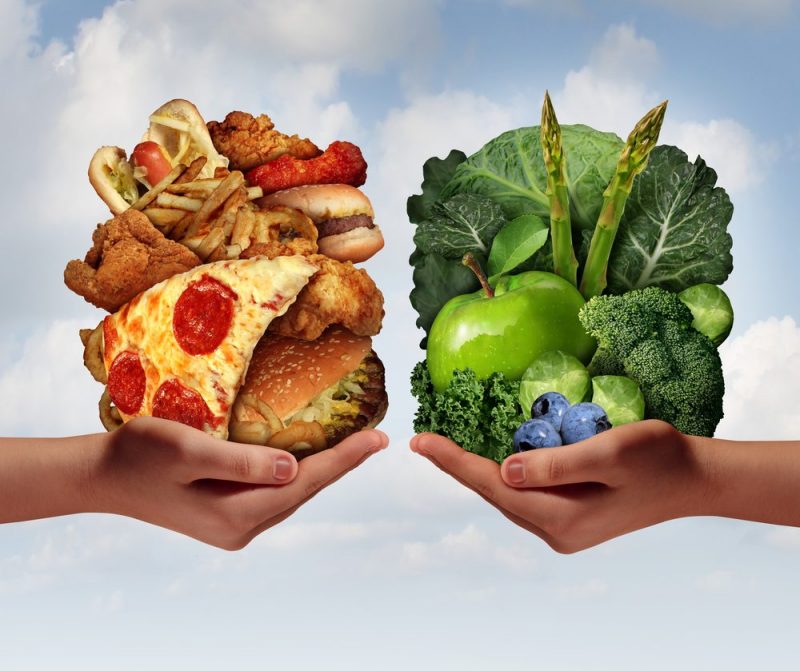
Mediterranean lifestyle is a way to lose weight and improve your health. It contains more than a dozen different ingredients that are good for the heart, and it helps you live a longer and healthier life. Although the foods on this diet are high in calories, they're also among the healthiest on earth. The best part? You can eat as much of this diet as you like, just make sure you are eating in the right amounts.
The Mediterranean diet is based upon the belief that eating a variety of food is the best way for heart disease prevention. It allows red wine and poultry, but it includes lots of vegetables and healthy fats. It encourages whole, nutrient rich foods, and limits processed sugars and sodium. It promotes a healthier lifestyle and healthy eating habits.

The Mediterranean diet has very low amounts of red meat. It also includes small amounts eggs and nuts. These foods have been shown to reduce your risk of developing heart disease by 30%, according to research. Other benefits of the Mediterranean diet include reduced incidence of heart attack, stroke, and dementia. There are also many other benefits, and you can find out more about them by reading this Mediterranean diet review. These foods can be incorporated into your daily diet to help you create a new lifestyle.
The American Heart Association reviewed Mediterranean diets and found that they have many benefits for health. It lowers your risk of ischemic heart disease and hypertension, and it is especially good for diabetes. But, not everyone can benefit from the Mediterranean diet. Women should limit the amount of wine they consume to one 5-ounce bottle per day; men should drink no more than two glasses. The Mediterranean diet has moderate dairy intake. It provides a high-fiber diet that's full of nutrients and fiber.
The Mediterranean diet has another benefit: it is high in fiber. Wholegrains provide more nutrition and fiber than white bread. The Mediterranean diet is low on fat but high in monounsaturated oil. This makes it less likely that it will cause heart disease. It's also lower in trans fat and saturated fat. In addition, a Mediterranean diet is rich in antioxidants.

The Mediterranean diet is rich in antioxidants. Studies have shown that the Mediterranean diet lowers the risk for stroke, Alzheimer's, dementia and other diseases. Its antioxidants protect against harmful free radicals. The body is protected against free radical damage by antioxidants from the Mediterranean diet. These free radicals have been linked with reduced risk of cardiovascular disease and certain types of cancer. In this Mediterranean diet review, we will explore how to get the most out of the Mediterranean diet for diabetes.
FAQ
Why is Metabolic Wellness the Key to Aging Well
People live longer today than ever before. They are also becoming more sick as a result. Our current medical science approach is not working, even though we've made many advances.
It is time to change the way we view health and aging. For healthy aging, it is important to look at metabolic well-being - not just weight reduction but overall wellbeing.
You must ensure your metabolism is strong and healthy throughout your life if you want to lead a long, active life.
There are many ways you can improve your metabolic health. One of those ways is to incorporate these 7 foods into your diet:
-
Resveratrol has been proven to increase cellular longevity. They also provide antioxidants and vitamins C & E.
-
Pinto beans and lentils are great sources of fiber and plant-based proteins. These nutrients help to keep blood sugar levels constant so they don't spike and crash.
-
Broccoli contains sulforaphane, shown in studies to protect cells against DNA damage. It could even slow down the growth of cancer.
-
Chia Seeds contain high levels of fiber and omega-3 fat acids. They are high in protein and antioxidants. These nutrients promote gut health, brain function and heart health.
-
Green tea contains catechins, which are polyphenols. Studies have shown that green tea contains catechins which are linked to lower bone fractures and cardiovascular disease. They also reduce cognitive decline and diabetes risk.
-
Salmonis one of the best sources of lean protein, low in saturated fat, and packed with vitamin D.
-
Walnuts are rich sources of omega-3s and antioxidants, such as alpha lipoic (ALA). ALA protects against inflammation and boosts energy production.
Is it true that overeating protein causes kidney stones?
Protein is essential for healthy bones and tissue. However, too much protein can result in calcium excretion through the urine. This can lead kidney stones.
It is important to keep in mind that not everyone will develop kidney stones if they consume more protein than 2 grams per kilogram (2.2lbs). People can eat large amounts of protein and not get kidney stones.
Watching your sodium intake can help prevent kidney stones. Sodium helps regulate water balance in the kidneys. High levels of sodium are linked to a greater risk of developing renal stones.
You can also reduce your intake of proteins if you develop kidney stones. About half of adults' daily caloric intake is made up of protein. You'll lose weight if you reduce your intake of protein.
If you do decide to eat more protein, don't go overboard. Aim for less than 20% of total calories from protein.
Are you a cardio-exercise fan?
Cardiovascular exercise has many advantages. It increases blood circulation, strengthens the heart muscle, boosts stamina, aids in weight loss, and gives you more energy.
Cardiovascular exercise includes running, biking, hiking, swimming, tennis, basketball, soccer, volleyball, football, etc.
Cardio exercises should be avoided at high intensity levels. Doing this could lead to injury.
You should only perform the cardiovascular exercise if you are feeling well.
Don't push yourself beyond what you can handle. In this way, you may injure or even kill yourself.
Begin by warming up before engaging in cardio exercise. Then, gradually build up to higher intensity levels.
Be aware of your body and listen to it. You should stop immediately if you feel any pain while doing cardiovascular exercise.
It is also recommended to take some time off after a cardiovascular exercise. This will allow your muscles to rest.
Cardiovascular exercise is an important part of losing weight.
This is the best way to lose weight and belly fat.
Is Cardio Better Than Strength Training?
Both are equally great. However, cardio is more effective if you're looking to bulk up faster.
Cardio burns far more calories per min than strength training. It also burns fat more efficiently.
Strength training builds muscle mass, but it takes longer to achieve this goal than cardio.
Which workout is best to build muscle?
Two main types of exercises are required for building muscle mass. These include isolation exercises and compound movements. While isolating exercises target specific muscles, compound movements are designed to focus on multiple muscle groups at once.
Your best option to improve your fitness is to work out with exercises that challenge all your major muscle group. This will ensure that you work hard every session.
MyFitnessPal, an app that tracks your actions, can be used to help you keep track. It lets you log everything from calories burned and weight lifting. You can even create customized meal plans that are based on your goals.
Statistics
- An estimated calorie range for moderately active adult males falls between 2,200 to 2,800 calories per day, depending on age. (eatright.org)
- According to the American Heart Association, blood pressure should be checked at least once every two years, beginning at age 20. (my.clevelandclinic.org)
- According to the American Academy of Dermatology (AAD), men over 50 are at a heightened risk of developing it. (healthline.com)
- Are You One of the 20% of Guys (mh.co.za)
- By John Thompson Take a whopping 38% off a set of PowerBlock Pros. (menshealth.com)
External Links
How To
How can I burn fat and exercise?
Exercise reduces calories by increasing metabolism, and oxygen consumption.
If you exercise with moderate intensity, you can safely lose weight.
These are the top tips for burning fat while you exercise.
-
Cardio exercises include walking, running, swimming, cycling, running and jogging.
-
Exercise for 30 minutes three times per week.
-
You can add strength training into your exercise routine if you're looking to lose even more weight.
-
Avoid intense exercise. It is possible to build muscle without destroying muscle tissue.
-
When exercising, make sure to drink lots of water. Water helps to flush out toxins from the body and maintains proper hydration.
-
After exercising, consume low-fat protein smoothies. Protein shakes are great for your muscles and energy.
-
Smaller meals are better for you.
-
Don't skip breakfast! Skipping breakfast can leave you feeling tired and sluggish.
-
Take care of your mind. Stressful situations can slow metabolism.
-
Keep a positive attitude. Studies show that overweight people are more likely to be obese than those who perceive themselves as attractive.
-
Get enough sleep. It is harder to lose fat if you don't get enough sleep.
-
Active living is key. Get up every hour and get moving.
-
Maintain a healthy diet. Eat right to feel satisfied and full for longer.
-
Find relaxation techniques. An anxious mind won't allow your body release stress hormones, which can lead to the destruction of muscle tissue.
A balanced diet will provide all nutrients that are necessary for growth.
Instead of eating three large meals a day, eat six smaller meals every day. This allows your body time to digest what you've eaten.
For strong bones to be maintained, you need approximately 500mg of calcium per day. Calcium can be found as a dairy product such as milk, yogurt and fortified soy drinks, orange juices, cereals, breads, and cereals.
Calcium can be found in leafy green veggies, beans, tofu and nuts as well as seeds, nuts and cheese.
Your body needs vitamin D to absorb calcium. Vitamin D is found in certain fortified foods, such as egg yolk and fatty fish.
Vitamin E is important for skin health. Vitamin E can also be found in vegetable oil, wheat germ oils, peanuts as well almonds, sunflower seeds and corn.
Your body requires zinc for normal immune function and wound healing. Zinc can also be found in legumes, oysters, meats and whole grains.
Zinc deficiency could cause fatigue, nausea, vomiting, and depression.
Too much sugar leads to insulin resistance. This results in higher blood glucose levels. Insulin resistance is linked to weight gain.
Insulin resistance develops when there are high levels of free radicals in the bloodstream. Free radicals can be molecules with unpaired electrons that cause damage to cell membranes.
Food additives, pesticides and herbicides, as well as preservatives, smoking and radiation are all sources of free radicals.
Free radical damage can cause cancer, heart disease and diabetes, as well as arthritis, asthma, and other diseases.
Antioxidants are essential for preventing free radical damage. Antioxidants protect against oxidative damage.
Antioxidant vitamins include Vitamin C (found in citrus fruits), beta carotene (found in carrots, sweet potatoes, spinach, broccoli, cantaloupe, apricots, squash, mangoes, peaches, peppers, tomatoes, cabbage, cauliflower, kale, Brussels sprouts, collard greens, watermelon, and strawberries), and Vitamin E (found in nuts, olive oil, avocados, and eggs).
Selenium, copper as well as manganese and zinc are some other antioxidant nutrients.
Selenium protects cells from free radical damage. Selenium is also found in Brazil nuts.
Copper protects your eyes, brain, eyes and red blood cell. Copper can be found in meat, shellfish, meat, and organ meats.
Manganese forms an essential part of bone structure. Manganese is found in brown rice, spinach, bananas, prunes, raisins, oatmeal, and lentils.
Zinc is important for healthy growth, reproduction, and wound-healing. Zn is present in lean cuts of meat and white fish, as well as eggs.